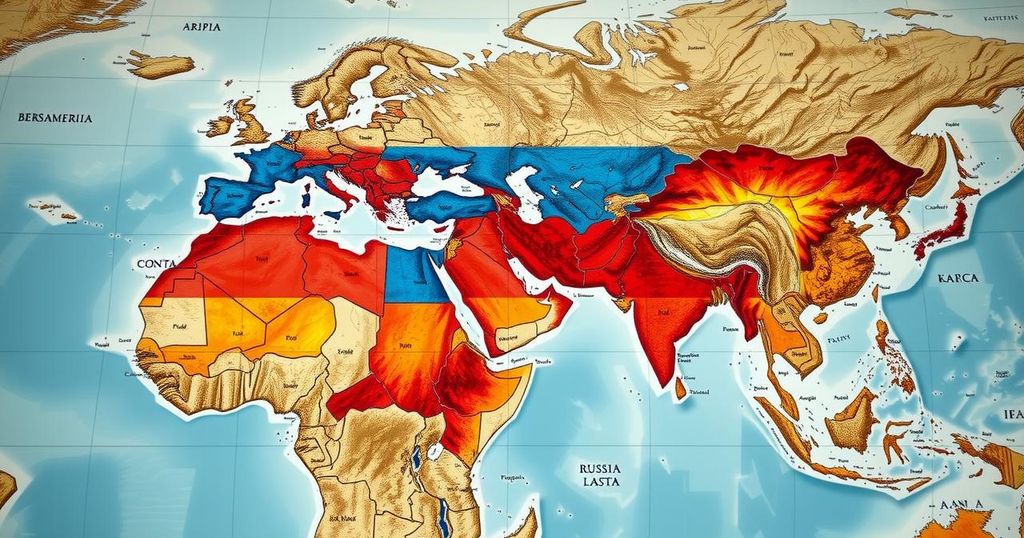The Diminished Influence of Russia in Africa
Russia’s perceived strength in Africa is declining as its military mercenaries are overstretched and facing significant operational setbacks. The Kremlin’s attempts to project itself as a liberator are undermined by rising violence in countries like Mali, and local governments are beginning to seek support from other partners, such as Turkey. Economically, Russia lacks the capacity to provide substantial aid, revealing the limitations of its influence.
The perception of Russia as a great power in Africa is increasingly challenged by the realities on the ground. Reports indicate that Russian mercenaries deployed in various African nations, particularly in Mali, are overstretched and under-equipped, resulting in rising civilian casualties and violence. A recent mobile phone video allegedly captured the aftermath of an attack where Russian soldiers died at the hands of an Islamist group, highlighting the stark contrast between Moscow’s portrayal and the actual conditions faced by its operatives. The Kremlin seeks to present itself as a liberator of African nations through a narrative rooted in Soviet-era support for anti-colonial movements; however, Russia’s true intentions appear to be more about securing resource exploitation agreements in exchange for military assistance.
Moreover, the effectiveness of Russian influence is waning as local governments start to perceive the limitations of what Russia can provide amidst its preoccupation with its military engagements in Ukraine and a diminishing presence in Syria. Notably, the situation in Mali has significantly deteriorated despite initial successes, and the death toll from violence continues to rise.
Additional concerns are posed by recent developments involving the Wagner Group, whose setbacks in Mali, including significant casualties during confrontations with rebel forces, have tarnished its reputation. Consequently, Malian leaders have shown signs of diversifying military partnerships, now looking towards Turkey for support rather than remaining solely reliant on Russian tools of power.
Beyond military operations, Russia’s economic engagement is also deficient compared to Western nations. Economic sanctions and a war economy have limited Moscow’s ability to offer substantial humanitarian aid or investment. While Russia has invested in disinformation campaigns to bolster its image, this approach may soon falter as the fundamental weaknesses of their military and economic outreach become more apparent.
The long-term sustainability of Russia’s influence in Africa hinges on its following through on promises of aid and support, which many locals question due to inadequate delivery. Overall, as the Kremlin finds itself surrounded by overwhelming challenges from ongoing conflicts, its foothold in Africa looks increasingly tenuous and its aspirations as a great power remain critically overstated.
This article addresses the perception and reality of Russian influence in Africa, particularly through its military operations and economic engagement. Moscow has attempted to project itself as a formidable power in the region, drawing upon its historical ties from the Soviet era, which are often romanticized in its propaganda. However, the actual performance of Russian mercenaries and diplomatic efforts reveals a stark discrepancy between the narrative and the outcomes, as reports of violence and ineffective operations grow.
The overarching conclusion that emerges is that Russia’s status as a great power in Africa is illusory and increasingly fragile. The failures in military engagements, lack of substantial economic support, and dwindling local trust reveal that Russia’s influence heavily relies on propaganda that is becoming harder to sustain. As Moscow finds itself entrenched in other conflicts, it risks further diminishing its role in Africa, leading to a reevaluation of its presence and capabilities on the continent.
Original Source: foreignpolicy.com




Post Comment